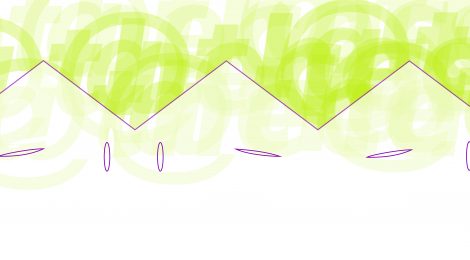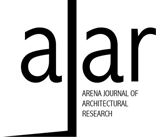
The Animal Gaze Constructed, London 2020-Mar-6-7
Symposium and Exhibition
NEW: See Book of Abstracts, here!
Early Bird Registration until 14.02.20!
Go to BOOKING
3rd Animal Gaze Symposium: ‘The Animal Gaze Constructed – Art, Architecture and Human-Animal Studies’
Location: The Sir John Cass School of Art, Architecture and Design, London Metropolitan University, London, U.K.
Symposium Dates: FRI 6 MAR and SAT 7 MAR, 2020
Abstracts
– Submission Deadline: Oct 14th, 2019
– Selection Deadline: Dec 14th, 2019
Website: www.animalgaze.org
Detailed Programme: Timetable
Contact: animalgaze@londonmet.ac.uk
Description: Shrinking horizons, slim pickings, poverty of scope. What new politics of nature are needed here for animals? What representations and spatial practices are required to redress the balance of our shared environments? What is a more animal-centric world like?
The third Animal Gaze symposium will bring together practitioners and academics to consider human/animal interactions and spatial practices as they manifest themselves in art and architecture.
We invite considerations of all kinds of animality and at all scales, in response to the following five loose themes: ‘House training’ invites explorations of the spatial, social and physical limits of our relations with animals and animality at the domestic scale. ‘In common’ seeks examinations of the social and political logics of public spaces both physical and ethereal, shared with other creatures. ‘Marking territories’ calls for considerations of how modes of production and representation shape animal space at wider territorial scales. What, for example, might the consequences be for the animal world, of advances in farming technologies such as robotics, artificial intelligence, and hydroponics? ‘Going feral’, invites investigations into human-animal behaviours which counter the order of things. What might a new wilderness be? ‘Scoping and visibility’ gives headway to an ongoing debate about the representation of animal presence – scale, size and intention.
Key notes
KEY NOTE: STEVE BAKER, Title of talk: ‘THE NECESSARY GAZE’
Steve is a Norwich-based artist and writer. He is Professor of Research for Art and Media at the University of Derby, and Emeritus Professor of Art History at the University of Central Lancashire. He is an artist-member of OUTPOST and of the national Land2 research network. Since 2010 his work has been exhibited in the UK, USA, Australia and Europe, and has featured in major animal-themed museum shows in Poland and Germany. In 2020 it will be included in As Kingfishers Catch Fire at Limerick City Gallery of Art. Baker’s academic writings over the past twenty-five years have contributed to the development of animal studies in the arts, humanities and social sciences. His books include Artist|Animal, The Postmodern Animal and Picturing the Beast, and his work is included in The Animals Reader: The Essential Classic and Contemporary Writings and the Routledge Handbook of Human-Animal Studies.
KEY NOTE: PEG RAWES, Title of talk: ‘ANIMAL RELATIONS IN A TIME OF CLIMATE EMERGENCY’
Peg is Professor of Architecture and Philosophy at the Bartlett School of Architecture UCL. Trained in art history and philosophy, her anthologies, Architectural Relational Ecologies: Architecture, Nature and Subjectivity (ed., 2013), and Poetic Biopolitics: Practices of Relation in Architecture and the Arts (co-ed., 2016), publish architects alongside practitioners in the arts, environmental, human rights, social and medical research. Other recent publications include: ‘Insecure Predictions’, E-Flux Architecture, 24 July 2018;’Housing biopolitics and care’ in A. Radman and H. Sohn (eds) Critical and Clinical Cartographies (2017); ‘Planetary Aesthetics’, in E. Wall and T. Waterman (eds) Landscape and Agency (2017).
KEY NOTE: ANDREW PICKERING, Title of talk: CONNECTING WITH ANIMALS AND MACHINES
Andrew is professor emeritus of sociology and philosophy at the University of Exeter, and a leading figure in science and technology studies. His latest book is The Cybernetic Brain: Sketches of Another Future and explores distinctive approaches and projects in artificial intelligence, the arts, robotics, complex systems, psychiatry, management and spirituality. His current work is focussed on posthumanist approaches in art and our relations with nature and the environment.
KEY NOTE: ANDREW PATRIZIO, Title of talk: BUMPING INTO ANIMALS
Andrew is a Professor at Edinburgh Collage of Art specialises in contemporary art. He has won UK awards for his work, moving across full-time academic and museums roles since the 1990s. He works in two main areas – Scottish art since 1945, and on art, ecology and the environment.
He has had 12 successful PhD completions; and is interested in PhD enquiries, particularly in relation to art & ecology and Scottish art of the 20th century.
After years working on art/science/medicine/animal studies topics, his research has moved firmly towards an ecological focus, most recently culminating in a new monograph – The Ecological Eye. Assembling an Ecocritical Art History (Manchester UP, 2019). Connected to this work, he is part of the Edinburgh Environmental Humanities Network, a vibrant community of academics working on environment and climate issues.
Andrew also works closely with art practice (from collaboration, commissioning and writing). He has been a long-time collaborator with artist Ilana Halperin, and worked closely with artists such as Christine Borland, Alan Davie, Giuseppe Penone, Gillian Wearing, Cornelia Parker and Mona Hatoum. In 2016 he co-curated the exhibition The Scottish Endarkenment. Art and Unreason from 1945 to the Present (with new work by Georgia Horgan, Louise Hopkins and Beagles & Ramsay). The exhibition featured in The Guardian’s top ten UK exhibitions of the year. Previous books include Contemporary Sculpture in Scotland (1999) and Stefan Gec (2002).
In past years Andrew has been Principal Investigator for a number of AHRC-funded projects including The Species of Origin: Evolving a Contemporary Darwin and the Arts Project (2007-8), and the award-winning Anatomy Acts. How we come to know ourselves (Scotland and Medicine: Collections & Connections, 2006). He represents the university on the Little Sparta Trust (and led the recent project Sharing Little Sparta which instigated artist residency programmes in Ian Hamilton Finlay’s garden and launched a new website).
Andrew has served on various boards including the Talbot Rice Gallery, the Fruitmarket Gallery and Scottish Contemporary Art Network (SCAN). He is also a founding member of the European Forum for Advanced Practice – a pan-European network.
Themes:
1. House Training
Working, human-animal relationships
Kinship, companionship and wellbeing
Memory, its representations and materiality
2. In Common
Air
Ground
Fairs, fetes, festivals and rituals
3. Marking Territories
‘Eco-field’
Boundaries; fences, walls, hard shoulders and hedges
Contested territory
4. Going Feral
Rewilding
Foreign
Disobedience
5. Scoping and Visibility
Absence
Privacy
The un-confiding
Abstracts & Bio:

